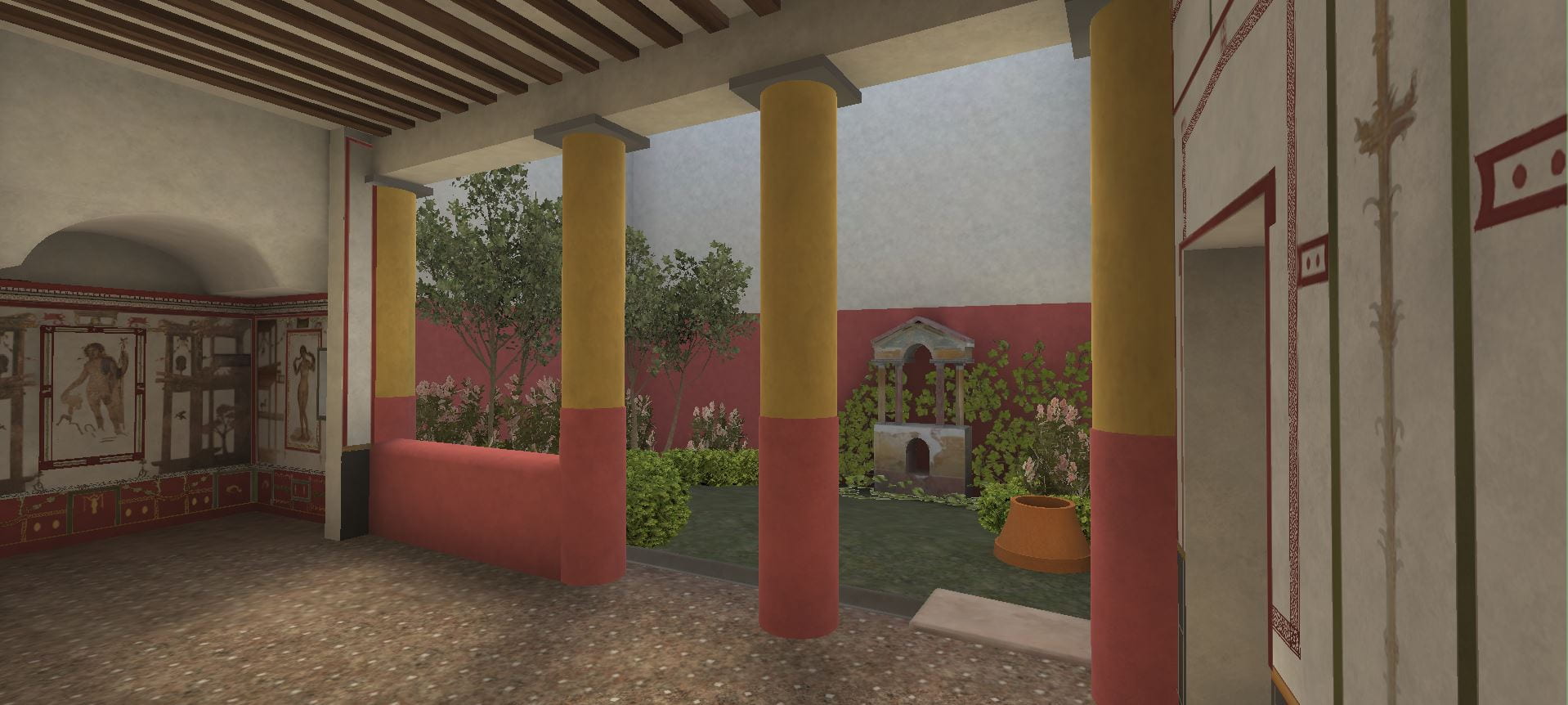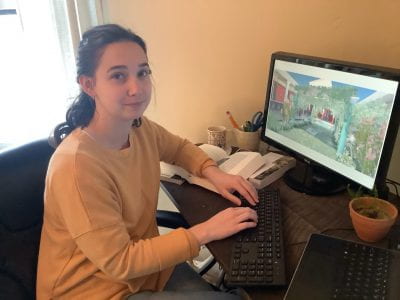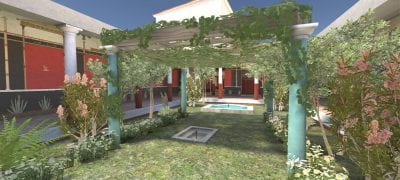I am Claire Campbell, a classical studies major in Fulbright college. Over the course of Fall 2020, I worked with my thesis mentor Dr. Rhodora Vennarucci in the classical studies department on the commercial gardens of Regio I and Regio VI of Pompeii. Current scholarship in Roman gardens has challenged the traditional binary approach to garden spaces. Previously, scholarship would categorize gardens into productive or aesthetic functions, which limits certain activities (work verses leisure) and the growth and maintenance of certain plants (aesthetic verses produce plants). While current scholarship rejects this approach, research has not focused on the gardens of commercial spaces which are typically only recognized for their productive function. My thesis incorporates this new approach to gardens and focuses on the gardens of commercial spaces, including taverns, inns and orchards. My thesis will analyze the qualities of commercial gardens, both productive and aesthetic, in order to suggest that commercial gardens incorporate the same qualities found in gardens of the private sphere.
My topic was an inspiration I received while studying abroad on the Classics in Greece trip with Dr. Daniel Levine in the summer of 2019. Some of the temples we visited, such as the temple of Hephaestus in the agora, had reconstructed landscaping that archaeologists were able to determine through palaeobotanical evidence. After looking more into the topic of palaeobotanical research in the ancient Mediterranean, I discovered Pompeii preserved some of the best evidence for ancient plant life. Because my research includes Roman archaeology, I wanted Dr. Rhodora Vennarucci, a Roman archaeologist, to be my thesis mentor. With her help, I had to adapt my approach many times in order to develop an original angle in Roman garden scholarship. While it was incredibly discouraging at times to rework the thesis question, I believe this has allowed me to look at all the evidence critically and to see what questions have yet to be asked. I am very pleased with the final format for my thesis, which I believe will be beneficial for future scholarship and aid in the reconstruction of ancient garden spaces in Pompeii.
With the help of my mentor and colleagues, I have created an interdisciplinary methodology study to gardens in Pompeii that is unique and useful for research and reconstruction purposes. Dr. Vennarucci has been a driving force in my thesis work. She is a constant source of support and encouragement. Working with her has taught me so much about the research process and my own research style. Dr. David Fredrick, who is on my thesis committee, has also been helpful in my research. I am a junior intern on the Virtual Pompeii Project that he directs. The project is using my research to virtually reconstruct the gardens in several Pompeiian houses. The garden catalogue that I created as part of this research was inspired by a research and development idea related to the Virtual Pompeii Project, which my senior intern supervisor Will Loder helped me to create. This typology can be used for this project as well as other research questions in Roman garden scholarship.
This past summer, I meant to participate in the Marzuolo Archaeological Project in Italy and visit the archaeological site of Pompeii to see the evidence I analyze in my thesis firsthand. I planned on incorporating the archaeological research from the Marzuolo project into my research on the gardens of Regio I and Regio VI of Pompeii to provide a comparison between rural landscaping and urban horticulture in my thesis. Due to the pandemic, my trip was postponed until summer 2021. If I am able to participate in the project this coming summer, I still plan to work on research at the site and potentially incorporate this research into my completed thesis. This semester, I will continue the writing process of my thesis and work on development of the garden typology in my catalogue for the Virtual Pompeii Project. My thesis research has been accepted to be presented at the annual meeting of the Classical Association of the Middle West and South in April 2021. I am incredibly proud of this accomplishment and have so many to thank for supporting me throughout this endeavor, including my professors, advisors, friends and family.



